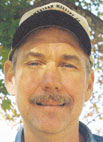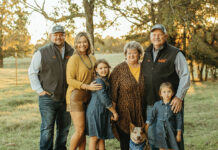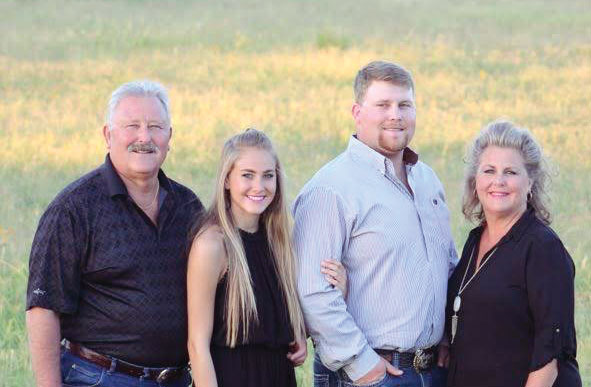
The commercial turkey industry has undergone dramatic improvements in growth and feed efficiency since 1920s when U.S. turkey growers produced one turkey for every 29 people. Today, the National Turkey Federation indicates that the average American downs about 16.9 pounds of turkey – a near 108 percent increase since Norman T. Findahl III, (hereafter, Norman) began working as a poultry grower in the late 1970s.
Norman and his wife of 24 years, Anna, a dispatcher with the University of Arkansas Police Department, have spent their married lives in the Hogeye community between Greenland and West Fork in Washington County, Ark. In 1975, Norman was a high school student when he took over the family farm after his father, Norman T. "Cooler" Findahl Jr., purchased the American Milling Co.
By 20, Norman had enough money saved for a down payment to purchase two chicken houses on a 10-acre tract.
For additional income, he began a side business venture washing out and disinfecting chicken houses. That and strict debt control allowed him to work his way up to owning multiple poultry houses on 110 acres while leasing another 200 acres for hay, plus running about 80 "mama" mixed-breed cows.
"Every farmer has to have a little bit of diversification," he said, "because you can’t buy land and pay for it raising cattle. We don’t have control of the markets, but we can control our spending. When the markets were good, I paid off my notes, and I’ve always maintained and reworked my equipment rather than getting new every few years. There’s opportunity, but it’s more a matter of debt control than anything."
Eleven years ago, Norman switched to turkeys when he had an opportunity to purchase a neighbor’s operation. He owns the facilities and pays the utilities, while the company owns the birds as well as the feed, medicines and other things put into the birds. Norman is a grower for HoneySuckle White. "Of all the companies that I have worked with, Cargill is the best, as far as taking care of its growers and providing a sufficient gas allowance."
The live production process in the turkey industry is a combination of management practices, bird health, nutrition and farm environment. As a producer, Norman said he must utilize his limited time between flocks wisely, because turkeys are vulnerable to enteric (intestinal) diseases and other unnamed viruses and bacterial challenges, and because, like other growers, he must be vigilant in controlling pests such as darkling beetles, flies and rodents.
Maintenance Practices
A good clean-out program to defeat enteric challenges includes sweeping the floor after litter is removed; a thorough wash down and disinfection; and an application of a litter amendment to the floor to kill bacteria that cannot be sanitized in dirt. Additionally, the ground outside the barn, particularly around exhaust fans and doors, must be treated. Norman explained he then readies the feed and water as well as the ventilation and heat systems because subtle changes in bird health influences his livelihood.
Once the poults arrive at his barns – the most recent was the first week of November – Norman takes on the role of technician, nutritionist and veterinarian in an attempt to control the flocks’ health.
The first four weeks is critical to the flock, he said, and staying focused on their needs and having the best water sanitation program in place every day of the flock’s life guarantees a producer’s success.
Future concerns
Between flocks, Findahl also researches alternative grower practices such as using wood pellets, placing furnaces outside his houses or burning chicken litter for heating. "There has to be balance in everything," he said. "Part of being a grower is being a good businessman, and while I’ve looked at alternative heating practices – propane is about $2 a gallon – I haven’t settled on anything, yet."
As any grower can verify, raising turkeys is no easy task. In comparison to broiler chickens, turkeys are difficult to start, the brooding period is more stressful for poult and grower, and turkeys remain on the farm longer, thus increasing the likelihood that something may go wrong before the flock sells. For now, Findahl said, being successful is as simple as being constantly vigilant of conditions within his turkey houses.







